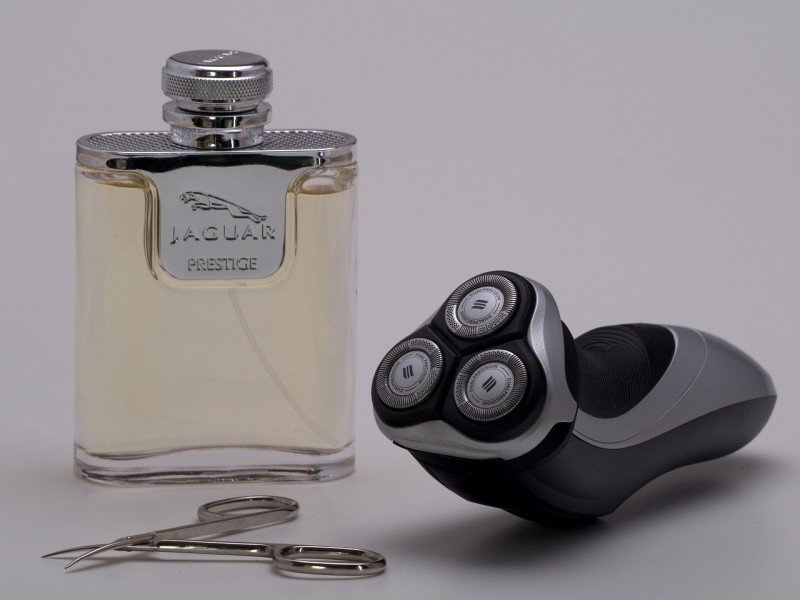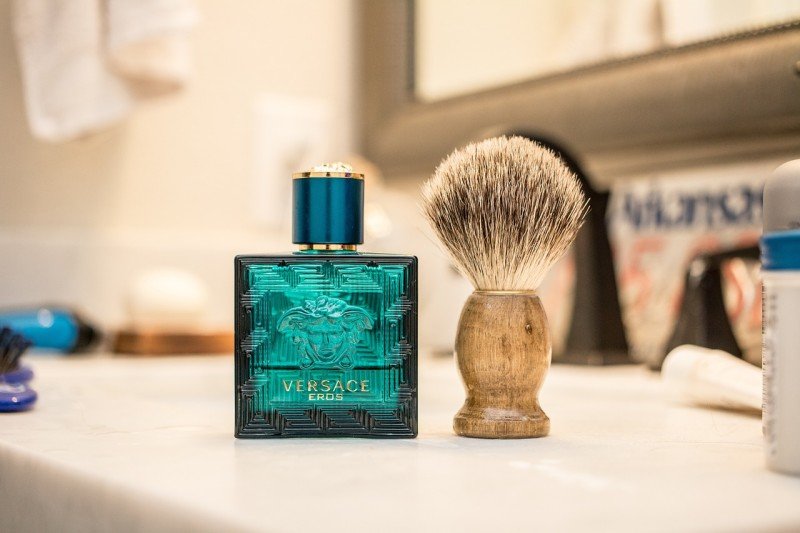Ever wondered what's the secret to a flawless, glowing complexion? You're about to uncover the world of men's exfoliants. Don't fret, it's not as complex as it sounds.
We'll break it down from physical scrubs to chemical acids and even enzyme exfoliants. You'll soon be navigating this landscape like a pro, choosing the best product to keep your skin healthy and vibrant.
Let's start this journey to discover the perfect exfoliant for your skin. Ready? Dive in!
Key Takeaways
- Chemical exfoliants like alpha and beta hydroxy acids are effective at unclogging pores and should be considered.
- Physical exfoliants, such as scrubs, offer a tactile experience but should be tested for sensitivity and irritation.
- Combination products that contain both physical and chemical exfoliants are available and can be a good option.
- Enzyme exfoliants are gentle and suitable for sensitive skin types, while retinoids should be used sparingly and with caution.
Understanding Different Types of Exfoliants for Men
To make the best choice for your skin, you'll need to understand the different types of exfoliants available for men. Chemical exfoliants, like alpha and beta hydroxy acids, penetrate deeper to unclog pores but may cause sensitivity in some. Physical exfoliants, such as scrubs, offer a more tactile experience but can be harsh on sensitive skin.
Your male skincare routine should take into account your skin's tolerance to exfoliant ingredients. Sensitivity varies from person to person, so it's crucial to test products first. You're serving your skin best by choosing a product that effectively removes dead cells without causing irritation.
Detailed Analysis of Physical Exfoliants, Scrubs, and Washes
You're now diving into the world of physical exfoliants, scrubs, and washes, and it's crucial to know the difference between these products and their specific effects on your skin.
To simplify, let's break down the key aspects of these exfoliation techniques:
-
Physical Exfoliants: These use tiny particles to manually remove dead skin cells. They're effective but can be rough on sensitive skin.
-
Scrubs are a type of physical exfoliant, typically with larger, coarser particles. Scrub ingredients often include things like ground walnut shells or sugar.
-
Washes: These are gentler, often using chemicals or enzymes to exfoliate. They're great for daily use.
-
Combination Products: These contain both physical and chemical exfoliants for a comprehensive clean.
Understanding these distinctions helps you choose the right product for your skincare needs.
Deep Dive Into Chemical Exfoliants: Glycolic and Salicylic Acid Products
So, where do chemical exfoliants, specifically glycolic and salicylic acid products, fit into your skincare routine, and why should they be considered?
Chemical exfoliants, like glycolic and salicylic acid, are essential for maintaining healthy, vibrant skin. They work by dissolving the bonds between dead skin cells, allowing them to be easily removed. This leaves your skin looking bright and fresh and helps promote the growth of new, healthy skin cells.
In the context of a skincare routine, chemical exfoliants are typically applied after cleansing and toning but before moisturizing. This is because they need to be in direct contact with your skin to be effective. After the exfoliant has been absorbed, a moisturizer can then be applied to keep your skin hydrated and nourished.
Glycolic acid, an alpha hydroxy acid (AHA), is derived from sugar cane and is known for its ability to penetrate deeply into the skin. It can help to reduce the appearance of fine lines, acne, blackheads, and dullness. On the other hand, salicylic acid, a beta hydroxy acid (BHA), is oil-soluble, meaning it can penetrate the skin's pores. This makes it particularly effective at treating acne and blackheads.
While chemical exfoliants are generally safer than physical exfoliants, which can create micro-tears in the skin, it's important to use them judiciously. Overuse can lead to skin irritation, dryness, and even chemical burns in extreme cases. Therefore, starting with a lower-concentration product is recommended, and using it once or twice a week. As your skin gets used to the product, you can gradually increase the frequency and concentration.
In conclusion, chemical exfoliants, specifically glycolic and salicylic acid products, can be an effective addition to your skincare routine. They can help to keep your skin looking fresh, vibrant, and youthful by promoting the turnover of skin cells. However, they should be used with care to avoid potential skin damage.
Insight Into Enzyme Exfoliants and Retinoid Products for Men
Enzyme exfoliants are a type of chemical exfoliant that works by breaking down the proteins that hold dead skin cells together, allowing them to be easily removed. This can help to unclog pores, reduce the appearance of fine lines and wrinkles, and improve overall skin texture. Unlike physical exfoliants, which can sometimes be too harsh for sensitive skin, enzyme exfoliants are typically gentle and non-irritating. Common ingredients in enzyme exfoliants include papain (from papaya), bromelain (from pineapple), and pumpkin enzymes.
Retinoids, on the other hand, are a type of vitamin A derivative that can help speed up cell turnover, stimulate collagen production, and reduce the appearance of dark spots and hyperpigmentation. They can also help to unclog pores and reduce acne breakouts. However, they can cause sun sensitivity, so it's recommended to apply them at night and always wear sunscreen during the day.
When it comes to using these products, it's important to start slow and gradually increase the frequency of use. This can help to minimize potential irritation and allow your skin to adjust. It's generally recommended to use enzyme exfoliants a few times a week, while retinoids can be used daily, but it's best to start using them every other day.
Finally, regardless of whether you're using an enzyme exfoliant or a retinoid, it's crucial to always wear sunscreen during the day. This can help prevent sun damage, leading to premature aging, hyperpigmentation, and an increased risk of skin cancer. Even if you're applying these products at night, the increased cell turnover they promote can make your skin more sensitive to the sun.
Summary of the Most Suitable Exfoliants and Related Queries
Wrapping up this discussion, you've delved into the world of enzyme exfoliants and retinoids but may still have some unanswered questions or concerns.
Exfoliants' profound impact on skin health; they remove dead cells, revealing fresher, brighter skin underneath. They're a crucial part of any men's skincare routine, working to fight aging, reduce acne, and improve overall skin texture.
For men, we recommend gentle, natural enzyme exfoliants for regular use. Retinoids, while potent, should be used sparingly due to potential irritation. Your specific skin type and concerns should also guide your choice of exfoliant.
Always remember, in skincare, consistency is key. Don't hesitate to consult a dermatologist if you're uncertain or experiencing adverse reactions.
Frequently Asked Questions
What Is the Proper Way to Apply an Exfoliant?"
You should begin by wetting your face. Next, apply the exfoliant, rich in exfoliant ingredients, using a gentle, circular motion. It's crucial not to scrub too hard. Rinse thoroughly and pat dry.
How Often Should Men Exfoliate Their Skin?"
You might think exfoliating often is beneficial, but it's not always so. Considering your skin type, you should exfoliate 2-3 times per week to reap the full exfoliation benefits without harming your skin.
What Are the Potential Side Effects of Over-Exfoliation?"
Over-exfoliation can cause skin irritation, redness, and dryness. You might also experience exfoliation allergies or ingredient sensitivity, leading to breakouts or skin discomfort. Always monitor your skin's response to exfoliation.
Can Exfoliants Help Reduce Acne Scars and Other Skin Blemishes?"
Yes, exfoliants can aid in fading acne scars and reducing blemishes. They're like erasers, gently scrubbing away old, marked skin to reveal a fresher canvas underneath. Your scar-fading methods just got simpler.
Are There Any Natural Alternatives to These Exfoliants?"
Absolutely, you can make DIY exfoliants using kitchen ingredients. Oatmeal, coffee grounds, or brown sugar mixed with coconut oil or honey can make excellent natural exfoliants. They're gentle and beneficial for your skin.


